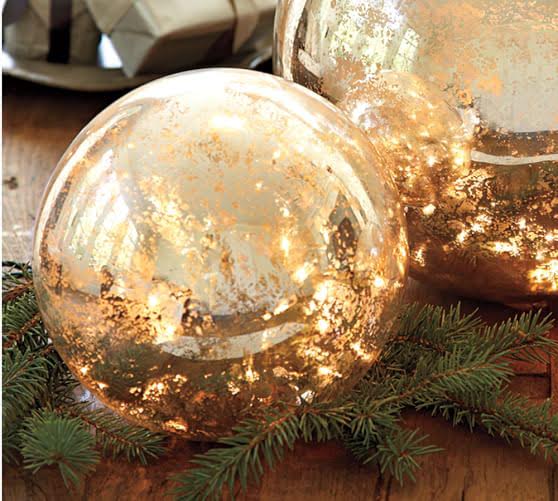Question from Stacey
Hi Debra,
I was shopping at Pottery Barn and noticed that they have many decorative items made of “mercury glass.” One mercury glass item has an “antiqued silver finish,” and another item states that it is made with a “silver nitrate finish.” Would you say these items are safe?
Thank you!
Debra’s Answer
This brings up something we always need to keep in mind when evaluating toxics: exposure.
I don’t know which items you are considering purchasing, but I took a look and chose a few to analyze.
The description says “blown-glass shapes with antique mercury finish. The mercury glass trees say “Hollow glass tree is mouth blown and has a mercury-glass finish on its interior.”
So it appears that the finish, whatever it is, is on the inside and you would be exposed to the outside glass, so even if it was toxic mercury, you wouldn’t be exposed to it.
However, mercury glass isn’t mercury at all, it’s simply silver applied to glass, in the same way that mirrors are made. At one time in the very distant past, mercury was used for this purpose, hence the name “mercury glass.” But today silver is used instead. You would have to search for an antique piece for it to be mercury.
I don’t see any harm in these decorations, and they would not outgas anything harmful into the air.





I read your comments on mercury glass but I’m still a little nervous about these two gorgeous lamps that I bought for my night stands because they came with a warning on the box about possible chemicals being harmful to your health and a website to consult. They are from the website, Lampsplus and they are called Alsace Mercury Glass Table Lamp if you could please advice me.
According to Wikipedia, mercury glass does not contain mercury. I am not familiar with the process of making mercury glass but from what I have read there are different techniques for decorating the surface so I can’t say for sure what chemicals are used. However, it is likely that the warning label is for something other than the glass. For example, there is often lead in power cords. If you call the company they might be able to tell you what chemical requires the warning label and what component it is used in. Depending on what the chemical is and where it is used, you may not be at risk for exposure.